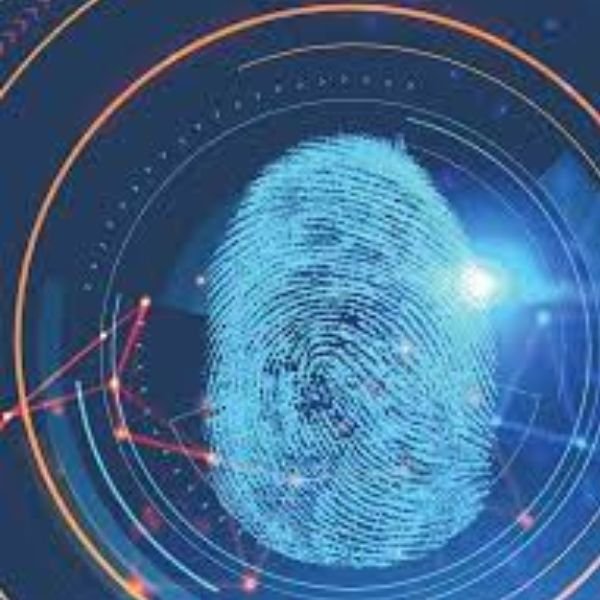Forensic Science colleges in Bangalore
Table of Contents
ToggleWhat is Forensic Science?
Forensic science, a field that has fascinated and inspired countless TV shows, movies, and novels, is a captivating and complex discipline that combines principles of science and law to analyze physical evidence and solve crimes.
It’s not just about lab coats and microscopes; forensic science is a multidisciplinary field that requires experts with a deep understanding of various scientific disciplines to solve the enigma that surrounds criminal cases.
In this article, we will delve into the fundamentals of forensic science, its origins, and how it has evolved over time to become an indispensable part of modern criminal investigations.
The Origins of Forensic Science
Although the term “forensic science” may seem like a modern invention, its roots can be traced back to ancient civilizations. In fact, the word “forensic” is derived from the Latin word “forensis,” which means “pertaining to a forum” or “public.” This indicates that the practice of using scientific principles to solve disputes has existed since the earliest legal systems.
Historically, the earliest recorded application of forensic science occurred in China around 1248, when a book titled “The Washing Away of Wrongs” was written by Song Ci. This text laid the groundwork for analyzing physical evidence and investigating crimes, and it still serves as a valuable resource for modern forensic scientists.
The Evolution of Forensic Science
Over the centuries, forensic science has evolved and expanded to incorporate advancements in technology and scientific knowledge. As new fields of study emerged, such as chemistry, biology, and physics, they were integrated into the forensic process to improve crime-solving capabilities.
The 19th century marked a significant turning point in the development of forensic science, with the establishment of the first forensic laboratories and the introduction of new investigative techniques. Pioneers like Alphonse Bertillon, who developed the anthropometry system for identifying criminals, and Sir Francis Galton, who laid the foundation for fingerprint analysis, made lasting contributions to the field.
In the 20th century, forensic science continued to progress rapidly, with breakthroughs like DNA fingerprinting, which revolutionized criminal investigations and helped solve countless cases. The advent of computers and digital technology further expanded the forensic scientist’s toolkit, opening the door to new specialties like digital forensics and cybercrime investigations.
The Multidisciplinary Nature of Forensic Science
Forensic science is inherently multidisciplinary, drawing on various scientific fields to analyze evidence and solve crimes. Some of the key disciplines involved in forensic science include:
Biology: Forensic biologists examine biological evidence like blood, saliva, and hair to establish a connection between a suspect and a crime scene.
Chemistry: Forensic chemists analyze substances like drugs, explosives, and trace evidence to determine their composition and origin.
Physics: Forensic physicists apply principles of physics to reconstruct crime scenes and analyze evidence such as glass fragments, gunshot residues, and tire marks.
Digital Forensics: Digital forensic experts recover and analyze electronic data from devices like computers, smartphones, and security systems to uncover digital evidence related to a crime.
Psychology: Forensic psychologists examine the behavioral patterns and mental states of criminals to provide insights into their motives and actions.
The Role of Forensic Science in Criminal Investigations
The primary objective of forensic science is to provide objective, unbiased evidence to aid in criminal investigations and legal proceedings. Forensic scientists examine physical evidence, interpret their findings, and present their conclusions in a clear, concise manner to help investigators and the legal system make informed decisions.
In many cases, forensic evidence can be the key to solving a crime, as it can link a suspect to a crime scene, confirm or refute an alibi, or establish the sequence of events.Top Forensic Science Colleges in Bangalore
Bangalore, the Silicon Valley of India, is not only known for its IT prowess but also for its excellent educational institutions. For aspiring forensic scientists, Bangalore offers a range of top-notch colleges that provide comprehensive education and training in this fascinating field. In this article, we will explore the top forensic science colleges in Bangalore that are shaping the future of crime-solving professionals.
Garden City University (GCU)
Garden City University is a premier educational institution in Bangalore that offers a Bachelor of Science (B.Sc.) degree in Forensic Science. This three-year program covers various aspects of forensic science, including crime scene investigation, forensic chemistry, toxicology, and forensic biology. GCU’s state-of-the-art laboratories and experienced faculty ensure that students receive a solid foundation in both theoretical knowledge and practical skills.
Website: https://www.gardencity.university/
Jain University
Jain University is another reputed institution in Bangalore that provides a B.Sc. degree in Forensic Science. The curriculum at Jain University is designed to equip students with the necessary knowledge and skills to excel in forensic science careers. The program includes modules on forensic serology, questioned document examination, forensic psychology, and digital forensics, among others. Jain University also encourages research, providing students with opportunities to engage in projects and collaborations with renowned institutions and experts in the field.
Website: https://www.jainuniversity.ac.in/
REVA University
REVA University is known for its focus on research and innovation, offering a B.Sc. degree in Forensic Science. The curriculum at REVA University is tailored to provide students with a solid foundation in forensic science principles and hands-on experience in modern techniques. The program covers topics like forensic toxicology, forensic anthropology, forensic odontology, and ballistics. Students also have access to well-equipped laboratories, a library with an extensive collection of resources, and opportunities to participate in internships and workshops.
Website: https://reva.edu.in/
Acharya Institutes
Acharya Institutes, a prominent institution in Bangalore, offers a B.Sc. degree in Forensic Science and Criminology. This interdisciplinary program combines the study of forensic science with criminology, providing students with a unique perspective on crime-solving and criminal justice. The curriculum includes subjects such as crime scene management, forensic photography, forensic medicine, and cyber forensics. Students at Acharya Institutes benefit from modern laboratories, experienced faculty, and opportunities to engage in research projects and internships.
Website: https://www.acharya.ac.in/
Bangalore University
Bangalore University, one of the oldest and most prestigious universities in the city, offers a postgraduate diploma in Forensic Science and Medical Jurisprudence. This one-year program is designed for graduates from various disciplines who are interested in pursuing a career in forensic science. The curriculum covers topics like forensic pathology, forensic anthropology, forensic chemistry, and forensic toxicology. Students at Bangalore University have access to excellent infrastructure, a vast library, and opportunities to collaborate with experts in the field.
Website: https://bangaloreuniversity.ac.in/
What students study in Forensic Science in Bangalore?
Forensic science, a captivating and multidisciplinary field, encompasses the application of scientific methods to solve crimes and analyse evidence. As a student pursuing a degree in forensic science, you will be exposed to an array of subjects that combine principles of science, technology, and law. In this article, we will delve into the key areas of study within forensic science education, giving you an insight into the fascinating world of crime-solving.
Crime Scene Investigation
A critical component of forensic science education is learning the techniques and procedures involved in crime scene investigation. Students are taught how to identify, collect, and preserve physical evidence at crime scenes while adhering to the highest standards of integrity and accuracy. This includes understanding the proper documentation of evidence, the use of photography and sketches, and maintaining the chain of custody to ensure the admissibility of evidence in court.
Forensic Chemistry
Forensic chemistry focuses on the chemical analysis of various substances found at crime scenes, such as drugs, explosives, and trace evidence. Students study analytical techniques like chromatography, spectroscopy, and mass spectrometry to determine the composition and origin of these substances. They also learn to interpret the results of chemical analyses and present their findings in a clear, concise manner.
Forensic Biology
Forensic biology involves the examination of biological evidence, including blood, saliva, hair, and other bodily fluids. Students learn about DNA analysis, serology, and other methods used to identify individuals and establish connections between suspects, victims, and crime scenes. They also study the principles of population genetics, which can help determine the likelihood that a particular individual contributed to the biological evidence.
Forensic Toxicology
Forensic toxicology is the study of the effects of drugs, alcohol, and other toxic substances on the human body. Students learn to detect and quantify these substances in various biological samples, such as blood, urine, and tissue. They also study the interpretation of toxicology results in the context of legal and medical cases, as well as the implications of drug interactions and the factors that influence drug metabolism.
Questioned Document Examination
Questioned document examination focuses on the analysis of documents to determine their authenticity and uncover potential forgeries or alterations. Students learn about handwriting analysis, ink and paper examination, and the use of imaging techniques to reveal hidden information or recover damaged documents. They also study the legal aspects of document examination, such as the admissibility of expert testimony in court.
Digital Forensics
As technology continues to permeate every aspect of our lives, digital forensics has become an increasingly important component of forensic science education. Students learn to recover and analyze electronic data from devices like computers, smartphones, and security systems. They also study the techniques used to investigate cybercrimes, such as hacking, identity theft, and online fraud.
Forensic Psychology
Forensic psychology combines principles of psychology and law to understand the behaviour of criminals, victims, and other individuals involved in the legal system. Students study topics like criminal profiling, eyewitness testimony, and the assessment of mental competency to stand trial. They also learn about the role of forensic psychologists in the criminal justice system, including the provision of expert testimony and the development of offender treatment programs.
Scope after Studying Forensic Science in Bangalore
A degree in forensic science opens up a world of possibilities for graduates, offering diverse and rewarding career opportunities across various sectors. From law enforcement and legal consulting to academia and private industry, forensic science professionals are in high demand for their unique expertise and skillset. In this article, we will explore the vast scope of career prospects available to individuals who have completed their studies in forensic science.
Crime Scene Investigator
One of the most well-known career paths in forensic science, crime scene investigators (CSIs) are responsible for identifying, collecting, and preserving evidence at crime scenes. They work closely with law enforcement agencies to analyze evidence and reconstruct events, providing crucial information to help solve cases. Strong attention to detail, excellent problem-solving skills, and the ability to work under pressure are essential traits for success in this role.
Forensic Scientist
Forensic scientists specialize in various disciplines, such as chemistry, biology, or toxicology, and apply their expertise to analyze evidence in criminal investigations. They work in forensic laboratories, processing and interpreting physical evidence to provide objective, unbiased findings for law enforcement and legal proceedings. Forensic scientists may also be called upon to provide expert testimony in court, explaining their findings and conclusions to judges, lawyers, and jurors.
Digital Forensics Analyst
With the rapid advancement of technology and the increasing prevalence of cybercrimes, digital forensics analysts have become essential to modern crime-solving efforts. These professionals recover and analyze electronic data from devices like computers, smartphones, and networks to investigate cybercrimes and gather digital evidence. Digital forensics analysts may work for law enforcement agencies, government organizations, or private corporations, helping to combat crimes like hacking, identity theft, and online fraud.
Forensic Psychologist
Forensic psychologists apply psychological principles to the legal system, offering insights into the behavior and motivations of criminals, victims, and witnesses. They may work in various settings, such as prisons, courts, or mental health facilities, providing expert assessments, consultations, and treatment services. Forensic psychologists also contribute to the development of public policy, offender rehabilitation programs, and law enforcement training.
Forensic Accountant
Forensic accountants specialize in the investigation of financial crimes, such as fraud, embezzlement, and money laundering. They analyze financial records and transactions to detect irregularities, trace assets, and determine the extent of financial losses. Forensic accountants often work for government agencies, accounting firms, or financial institutions, and may collaborate with law enforcement and legal professionals in the pursuit of financial criminals.
Forensic Odontologist
Forensic odontologists are dental professionals who apply their knowledge of dentistry to the identification of human remains and the analysis of bite mark evidence. They may work with law enforcement agencies, medical examiners, or disaster response teams to identify victims in cases of mass disasters, accidents, or criminal investigations. Forensic odontologists also contribute to research in the fields of dentistry and forensic science, advancing our understanding of dental evidence and its applications.
Forensic Science Educator
For those passionate about sharing their knowledge and expertise, a career in forensic science education offers the opportunity to shape the next generation of forensic professionals. Forensic science educators teach courses at colleges and universities, develop curriculum materials, and conduct research to advance the field. They may also collaborate with law enforcement agencies, forensic laboratories, or other organizations to provide training and professional development opportunities.
Placement opportunities after Studying Forensic Science in Bangalore
Forensic science graduates possess a unique set of skills and expertise, making them valuable assets to a diverse range of organizations. As the demand for qualified forensic professionals continues to grow, placement opportunities in various sectors present exciting prospects for career growth and development. In this article, we will explore the key industries and organizations offering placement opportunities for individuals with a background in forensic science.
Law Enforcement Agencies
One of the most common placement opportunities for forensic science graduates is with law enforcement agencies, such as local police departments, state investigative bureaus, or federal agencies like the FBI or DEA. These organizations rely heavily on forensic experts to analyze evidence, reconstruct crime scenes, and provide insights to aid in criminal investigations. Positions within law enforcement agencies may include crime scene investigators, forensic laboratory analysts, or digital forensics specialists.
Government Laboratories
Many forensic science graduates find placement opportunities in government-operated forensic laboratories. These facilities provide analytical services to law enforcement agencies and other government organizations, processing and interpreting physical evidence in criminal cases. Positions within government laboratories may include forensic chemists, forensic biologists, or forensic toxicologists, among others.
Private Forensic Laboratories
In addition to government laboratories, there are also private forensic laboratories that offer placement opportunities for forensic science graduates. These facilities may provide specialized services, such as DNA analysis, drug testing, or questioned document examination, to law enforcement agencies, legal professionals, or private corporations. Working in a private laboratory can offer a more diverse range of cases and clients, as well as the potential for greater flexibility and autonomy.
Legal and Consulting Firms
Forensic science graduates may also find placement opportunities in legal and consulting firms, where their expertise can be leveraged to assist in civil and criminal cases. In this capacity, forensic professionals may provide expert consultation, conduct independent analyses of evidence, or testify as expert witnesses in court proceedings. This career path allows for exposure to a wide variety of cases and industries and can be particularly rewarding for those with strong communication and analytical skills.
Corporate Sector
The corporate sector offers a range of placement opportunities for forensic science graduates, particularly in industries such as finance, pharmaceuticals, and technology. In these roles, forensic professionals may be responsible for investigating cases of fraud, intellectual property theft, or cybercrime, helping to protect the organization’s assets and reputation. Additionally, some companies may employ forensic experts to ensure compliance with industry regulations and standards.
Education and Research Institutions
Forensic science graduates with a passion for teaching and research may find placement opportunities in educational institutions or research centers. In this capacity, professionals can contribute to the advancement of forensic science by teaching courses, developing curriculum materials, or conducting research projects. Collaboration with law enforcement agencies, forensic laboratories, or other organizations may also provide opportunities for training and professional development.
Non-Governmental Organizations (NGOs)
Non-governmental organizations focused on human rights, disaster relief, or environmental protection may also offer placement opportunities for forensic science graduates. In these roles, forensic professionals may be responsible for the identification of human remains, the analysis of environmental samples, or the investigation of human rights violations. Working with NGOs can provide a unique and rewarding career path for those interested in using their forensic skills to make a positive impact on the world.
Conclusion
The diverse range of placement opportunities available to forensic science graduates reflects the growing demand for their unique expertise and skillset. Whether working with law enforcement agencies, private laboratories, or non-governmental organizations, forensic professionals play a vital role in the pursuit of truth and justice. By exploring the various placement opportunities within the field, graduates can find a rewarding career path that aligns with their interests and goals, making a significant impact in the world.





